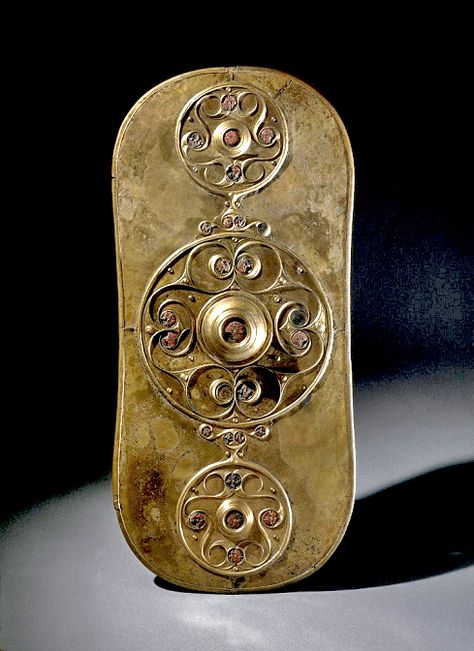October Opens the Passage to Our Past
OCTOBER OPENS THE PASSAGE TO OUR PAST : The Writing Option Keep on Keeping ON
Roman Month Celebrating No More War—at least till Spring
Thank the Romans for their efficiency, as well as their need for ritual to take time to give their gods especial reverence at the harvest end of the year. Like many early civilizations, dependent on the Earth for growth, food, sustenance, this was a time of endings.
From a more advanced urban mindset, citizens welcomed home the troops in October, signalled primarily by the joy of seeing returning campaigning legions home for the winter: it coincided with—most important—grape harvest, along with publicly celebrated wine ratings in each vintage. So, naturally, there would be no-work days, time for parties.
And, most anticipated, the free-for-all Capitoline Ludi games.

After heavily-armored marches through alien and conquered territories, great importance was attached to receiving returning armies of footsoldiers with the blessing of Mars. A special entry into the city through a gate of purification allowed them to release all warlike thoughts, ritually cleanse their weapons for storage, and prepare to become peace-loving citizens—at least till spring.
An ancient trilithon gate, predating Caesar’s campaigns at one time marked a sacred portal into the city, through which soldiers returning home had first to pass in order to release their warlike passions and resume their roles as Quirites (people of Rome).
Jupiter usually presided over all festivities, but in October he shared the glory with Juno his wife, her attendants, and with Ceres, goddess of the harvest. Mars had his own Ludi on the Campus Martius, but biggest games of the season were held on the Ides (15th, half way through month). Then Jupiter let loose all his thunderbolts for the chariot races at the Capitoline games, celebrating the horse—Equus October—with feasting and sacrifice.
Surprisingly, our heavily-embedded Hallowe’en season at month’s end—disguised as frivolity, but aligned with pagan, Gaulish, Saxon, Celtic and Pictish tradition—was celebrated early in the Roman month, before the Nones (9th), in an attempt to appease their gods of the Underworld and Death. They witnessed Earth Opening Mundus Patet, before throwing the world’s most lavish party.
Public Blessing of Water Shrines
And, if you thought throwing a coin into the Trevi fountain was a modern happy-return charm, Romans gave offerings to Fons, god of springs, as part of FONTINALIA ‘Ante Diem III Idus Octobres’ runup to Ides games. Both were public holidays. Garlands were hung at springs and wells throughout the city. Custom of offering coins to wells and fountains in the ancient Mediterranean was widespread, as all sources of water were especially venerated by city and country people alike. Harvest depended on a good water supply.
Ante Diem III Nonas Octobras (3 days before Nones) Mundus Patet (EarthDoor Mundus is opened)
One of three times in Roman year—plus August 24th & November 8th— when the mundus, Gate to the Underworld, opened so the dead might communicate with the living. Pluto, god of Underworld, allowed traffic between the two!

“it is as if the door of the grim, infernal deities were open.” Varro
In Julian calendars it was technically a dies comitalis; no public business could be performed. No battles could be fought, no ships set sail, and no marriages could take place on days when the mundus to Hades was opened. All underworld spirits could roam the land, and therefore any actions undertaken on such a day would be inauspicious.
IDES OF OCTOBER
Feria Jovi —Feast of Jupiter, Equus October—October Horse—alongside Ludi Capitolini (Capitoline Games)
The Ides of each month were sacred to Jupiter, but the ides of October were nefastus publicus, something special. It included events dedicated to Mars rivalling those of Jupiter. Indeed Jupiter bountifully shared his glory. On this day, chariot races in honor of Mars were held on the Campus Martius—literally, Mars’ Field.
The right horse of the winning pair was sacrificed by the flamen Martialis on an altar to Mars right on the Field. Before being sacrificed, the horse’s head was adorned with loaves of bread, and cake, to acknowledge and thank Mars for protecting the harvest. Mars was primarily an agricultural protector-god, rather than sole warrior god.
All in honour of Mars.
 After the horse was sacrificed, its head was cut off and decorated with cakes, while residents of two neighborhoods, Via Sacra and the Subura, in friendly rivalry vied for possession of the head. If the Via Sacra got it, it was nailed it to the wall of the Regia; kings’ palace. If Subura, tradition nailed it to the Turris Mamilia. Meanwhile priests collected the tail and genitalia of the sacrificed horse, still dripping blood, and paraded it to the king’s house, where it bled on the sacred hearth. Vestal Virgins then collected and kept the gore and ashes for distribution at Parilia, a spring festival.
After the horse was sacrificed, its head was cut off and decorated with cakes, while residents of two neighborhoods, Via Sacra and the Subura, in friendly rivalry vied for possession of the head. If the Via Sacra got it, it was nailed it to the wall of the Regia; kings’ palace. If Subura, tradition nailed it to the Turris Mamilia. Meanwhile priests collected the tail and genitalia of the sacrificed horse, still dripping blood, and paraded it to the king’s house, where it bled on the sacred hearth. Vestal Virgins then collected and kept the gore and ashes for distribution at Parilia, a spring festival.
October 19 ARMILUSTRIUM —Purifying Weapons of War Let in Light
A bunch of dirty, blood-thirsty, gritty warriors with nothing to do during the winter months wasn’t a good idea. To avoid contaminating the city and its civitates from being infected by contact with the blood of ‘colonials’, priests of Mars danced and sang in the streets to Mars. In a great lustratio, rite of purification on Aventine Hill, the tubae, sacred war trumpets—reminiscent of pagan Pictish carnyx, were sounded, as the arma and ancilla sacred implements of war were purified and put away until next year.

October All Over
Brittonic military might, including combined armies of Brigantes, Iceni, Caledonians and Pictish Men of Fortriu were a force to be reckoned with. Septimius Severus and Agricola were in no doubt about their tentative hold on the Ultima Thule of Britain. Safety was always envisioned as returning to Rome for comfort, family and celebration. After all, the tribes of that remote colony had challenged the Empire on several occasions—most threatening being Queen Boudicca’s AD61 uprising which destroyed Roman Londinium and St. Alban’s.
Writing Emulates Ancestors in Hallucinating through Hallowe’en
Hallowe’en nowadays is almost a relief, after touching on its antediluvian origins. Masks replace masque balls temporarily in 2020, but the urge to write—to create audibly, visually or virtually—has become commonplace in times where solitude and catchup reading have been life savers.
If we read the portents for October 2020—Jupiter conjunct Saturn with Pluto; Mars rivalling the full moon—Draconid meteor showers in progress until month’s end— we scribes in the writing community may be forgiven for choosing the nose-to-the-grindstone option of holing up in our writer’s cave, locking the door and… writing.
Either that, or throwing in the towel. Not yet, I hope. We need one or two ancient goddesses in our corner, if only because next month is NaNo time <; Thank you Juno, Ceres, Vestals alongside Mars, Jupiter; and long-lost Britannia.
©2020 Marian Youngblood











